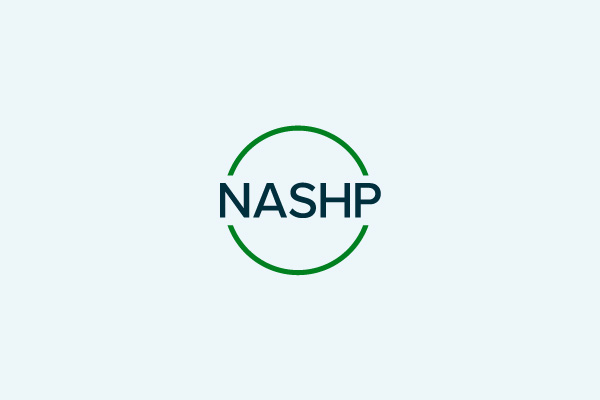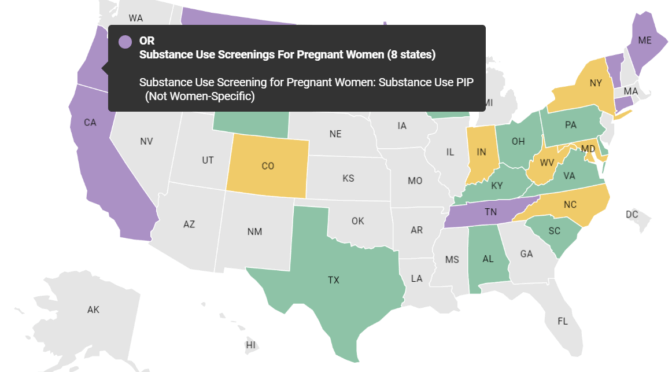This information was collected through a combination of state surveys and NASHP staff research. It offers a snapshot of how the state is defining, training, certifying, and paying for the CHW workforce — as well as how the state is developing cross-agency and state-to-local strategies to improve community health in partnership with CHWs.
This is a dynamic policy space, and states are continuing to develop new approaches. We will continue to make periodic updates to this page. Learn more about state CHW policies across the U.S.
State CHW Definition
The New Mexico Department of Health’s Office of Community Health Workers defines CHWs as “frontline public health workers and critical members of health care delivery teams. They focus on the social aspects of care that support and enhance critical clinical activities such as diagnosis, treatment, or clinical procedures that are performed by licensed health professionals like doctors and nurses. These social and routine aspects of chronic care often are not prioritized in busy and resource-low clinical settings, which can be managing high patient loads each day. This care is essential to assist families to adopt and maintain behavior change skills needed to manage their health, and to overcome barriers encountered in the health care system.
Because CHWs may face the same barriers as the individuals and families they serve, and because they share the same language, ethnicity, cultural, educational, and class background, they are uniquely positioned to act as bridges between their communities and the health and social service systems. By providing a wide variety of services and health information in a linguistically and culturally appropriate manner CHWs can extend the reach and quality of health care services to improve health outcomes.”
Certification and Training
The New Mexico Department of Health (NMDOH) approves some CHW training and continuing education programs. The NM CHW Certification Board determines requirements for CHW state certification and serves in the advisory capacity for the NM Department of Health, Office of Community Health Workers.
- Certification Paths:
- Grandfathering Certification: Acknowledges paid or volunteer work experience of 2,000 hours prior to the signing of the CHW statute in 2014; 18 years in age; 2 letters of reference; verification of proficiency in Core Competencies through training or experience.
- Formalized Training Program: Receiving Core Competency training hours (100) with an endorsed training entity approved by the NMDOH, Office of Community Health Workers, including 40 hours of experiential learning approved by the agency.
- CHW certification is valid for two years and certification fee of $45/applicant.
- Certification Specialties:
- Generalist – meeting the certification paths of grandfathering and formalized training program.
- Specialist I/II/III – eligible to receive specialty trainings with an approved training entity within a specialized content area if training hours of 12 or more is received consecutively (Asthma, Harm Reduction, Domestic Violence, Human Trafficking, etc.)
The NMDOH Office of Community Health Workers (OCHW) approves and endorses training entities interested in becoming an approved core competency training program to support state CHW certification and meet the training needs statewide. Additionally, NMDOH/OCHW endorses training entities as continuing education providers to support professional development of CHWs in support of state CHW certification and renewal certification.
Medicaid Reimbursement
Centennial Care, the New Mexico Medicaid program, has leveraged contracts with Medicaid managed care organizations (MCOs) to require partnerships with CHWs in serving Medicaid enrollees. CHW salaries, training, and service costs are covered through MCO administrative costs and embedded in capitated rates paid to Medicaid MCOs.
New Mexico started reimbursing CHWs and CHRs through a SPA on July 1st, 2023. The SPA is currently out for public comment and then will be submitted after the comments are reviewed. However, the payments will be retrospectively paid back to July 1st. CHWs will be paid based on CPT time-based preventative codes (98960, 98961, 98962) in 30-minute increments with a cap of 8 hours per member per month but no daily cap per member. Tribal 638s and FQHCs will also be able to bill for CHW services using the same rates and CPT codes as other CHWs, outside of their regular encounter rates.
Other Funding or Financing Mechanisms
Other CHW programs and activities in New Mexico are covered under grant funding, including the CDC Health Disparities Grant and CDC Vaccination Supplemental Funding, or philanthropic opportunities, including from the W.K. Kellogg Foundation.
Key Partnerships
Key partners include the New Mexico and Southern Colorado CHR Association, New Mexico Southern Promotora Committee, New Mexico CHW Certification Board — which determines requirements for CHW state certification — and the Developmental Disabilities Council.
State CHW Legislation
SB 58, the Community Health Workers Act, creates a voluntary statewide certification program for CHWs in New Mexico through the Department of Health.
The New Mexico Administrative Code (NMAC) 7.29.5 Certification of Community Health Workers — the objective of this rule is to implement the Community Health Workers Act (SB 58).
State Resources
State Overviews
ACO – Accountable care organization
AHEC – Area Health Education Centers
APHA – American Public Health Association
APM – Alternative payment model
CBO – Community-based organization
CDC – Centers for Disease Control and Prevention
CDC CCR Funding – Community Health Workers for COVID Response and Resilient Communities Funding
CHR – Community health representative
CHW – Community health worker
CPT Codes – Current Procedural Terminology Codes
C3 Project – CHW Core Competency Project
FFS – Fee for services
HCSPCS Codes – Healthcare Common Procedure Coding System Codes
HRSA – Health Resources & Services Administration
MCO – Managed care organization
NACHW – National Association of Community Health Workers
SDOH – Social determinants of health
VBP – Value-based payment
State CHW Definition: This category indicates where states have a formal definition of a CHW. In some cases, where there is not a definition in statute, this category may draw information from provider manuals and state websites or reports.
Certification and Training: This category includes information about how CHWs are trained in the state, which entities provide training, whether or not the state runs or recognizes a CHW certification program, and information about the entities that administer existing certification programs.
Medicaid Reimbursement: This category includes information about state Medicaid strategies that provide enrollees access to CHW services. Entries indicate whether state Medicaid programs currently reimburse for CHW services or incorporate CHWs into alternative payment models under the authority of a state plan amendment (SPA), or where states have earmarked funds to support CHW services under the authority of an 1115 demonstration waiver. It also indicates where CHW services might be supported through managed care approaches (e.g., where MCOs are paying for CHW services using administrative dollars or where states are using managed care contracts to incentivize or require MCOs to cover CHW services).
Other Funding or Financing Mechanisms: This category includes information about other state funding or financing approaches that cover CHW services or CHW positions. It includes information about federal grant dollars for which the state is the grantee.
Key Partnerships: This category offers information about key partners outside state government, including state CHW associations and CHW training entities, and highlights formal cross-agency partnerships within the state that support alignment of funding and resources for the CHW workforce.
State CHW Legislation: This category highlights any state legislation relevant to the CHW workforce. This might include statutory language directing agencies to develop a Medicaid reimbursement approach, laws that established state CHW certification, or other relevant statutes.
State Resources: This category offers links to any key reports or resources that states elected to highlight as critical to CHW policy and partnership.



